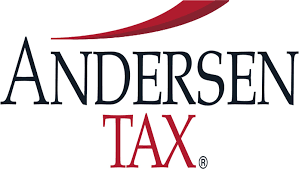Andersen Tax Nigeria, one of the Nigeria’s leading tax and business advisory companies, has queried how the Federal Inland Revenue Service (FIRS) arrived at the N1.8 trillion tax notice it served on MultiChoice Nigeria, warning that the current dispute between the tax agency and company over the tax figures could hurt the reputation of both parties.
The professional view of the firm on the lingering face-off between the federal revenue agency and the entertainment company was expressed in an article titled ‘Reputational Risks and Tax: MultiChoice as Case Study’ and published on its website.
One of the key points raised in the research paper was that the FIRS may have adopted a faulty computational premise to arrive at the tax figures.
The business advisory consulting firm described as misleading the FIRS’ claim that Nigeria accounts for 34 per cent of the total revenue of the MultiChoice Group ahead of Kenya with 11 per cent and Zambia in third place with 10 per cent as the basis for arriving at N1.8 trillion and $342 million tax liability for the DSTV owner
Relying on MultiChoice Group’s audited financial statements for 2019 to give its opinion on the lingering disagreement between the revenue agency and the entertainment company, Andersen noted in the article that Nigeria only accounted for 34 per cent of the group’s Rest of Africa (RoA), with the RoA accounting for 29.6 per cent of the group’s revenues.
It stated: “Thus, the effective total revenue of Nigeria to the group is 10.19 per cent. It is arguable that 10.19 per cent is significantly different from 34 per cent of total revenue. However, one cannot help but question whether some other parameters in the computation of the alleged tax liability are also misleading.”
Also describing the press statement issued by the FIRS on the tax matter as biased, the advisory firm stated that “the FIRS Chairman observed that the issue with tax collection in Nigeria, especially from foreign-based companies conducting businesses in Nigeria and making massive profits is frustrating and infuriating.”
According to the company, the statement could be interpreted as delineation of taxpayers by nationality and could create bias in the mind of the public against foreign-owned companies.
Andersen further stated: “Consequently, a routine tax audit of a foreign-based company that is profitable in Nigeria may trigger apprehension, given the perception that they are seen as worse offenders ab initio.
“As a matter of fact, the posture from the FIRS towards foreign-based companies may lead some to adopt the approach of being aggressive with tax planning, so that they can eventually concede to liabilities, which they believe the tax authorities will insist on establishing”, the firm cautioned.
While commending the federal revenue service for increasing Nigeria’ tax collection despite the economic challenges the country is contending with, the advisory firm urged the FIRS to be restrained in taking actions and issuing statements capable of putting a question mark on companies’ reputations, especially in an age of social media and instant messaging.
In addition, in pointed out that it would be more beneficial for tax agencies to appear friendly, fair and develop an awareness of reputational risk, especially in view of Nigeria’s unimpressive ease of doing business indices.
Andersen further noted that reputational risk can lead to distrust, with the ultimate consequence of underpayment of taxes or shortfall in tax collection.
Before expressing its professional position on the lingering face-off between the FIRS and Multichoice Nigeria, another leading research and advisory firm, PricewaterhouseCoopers, in its PwC Tax Alert, had last week also faulted the ruling of the Tax Appeal Tribunal (TAT) on the dispute and its interpretation by the FIRS.
It noted that the directive issued by the TAT did not compel MultiChoice to pay 50 percent of N1.8 trillion, being half of the disputed tax assessment before its appeal could be heard, stressing that the company is only required “to deposit with FIRS an amount equal to the tax paid by Multichoice Nigeria in the preceding year of assessment or one half of the disputed tax assessment under appeal, whichever is the lesser amount, plus 10 per cent”.






